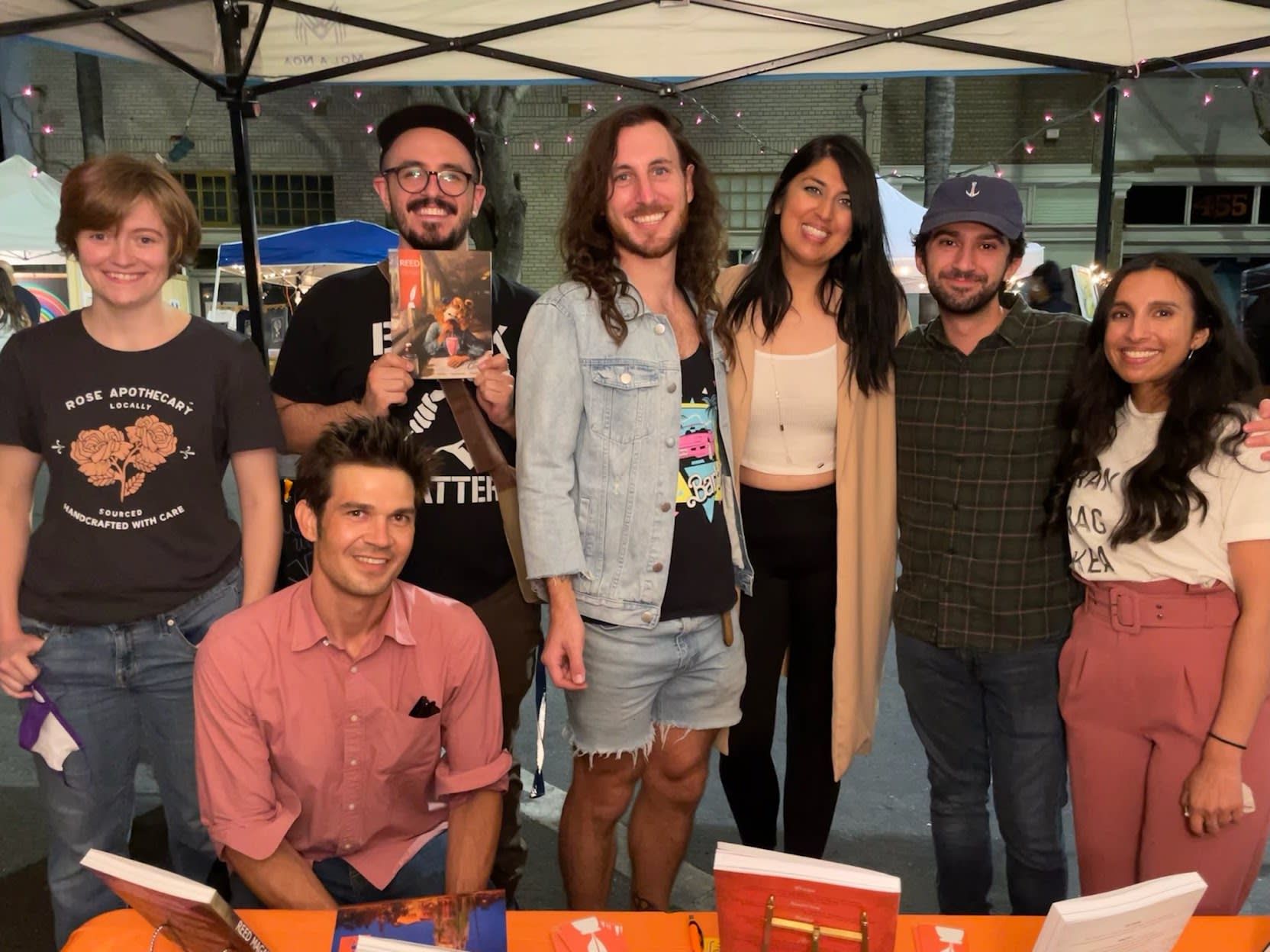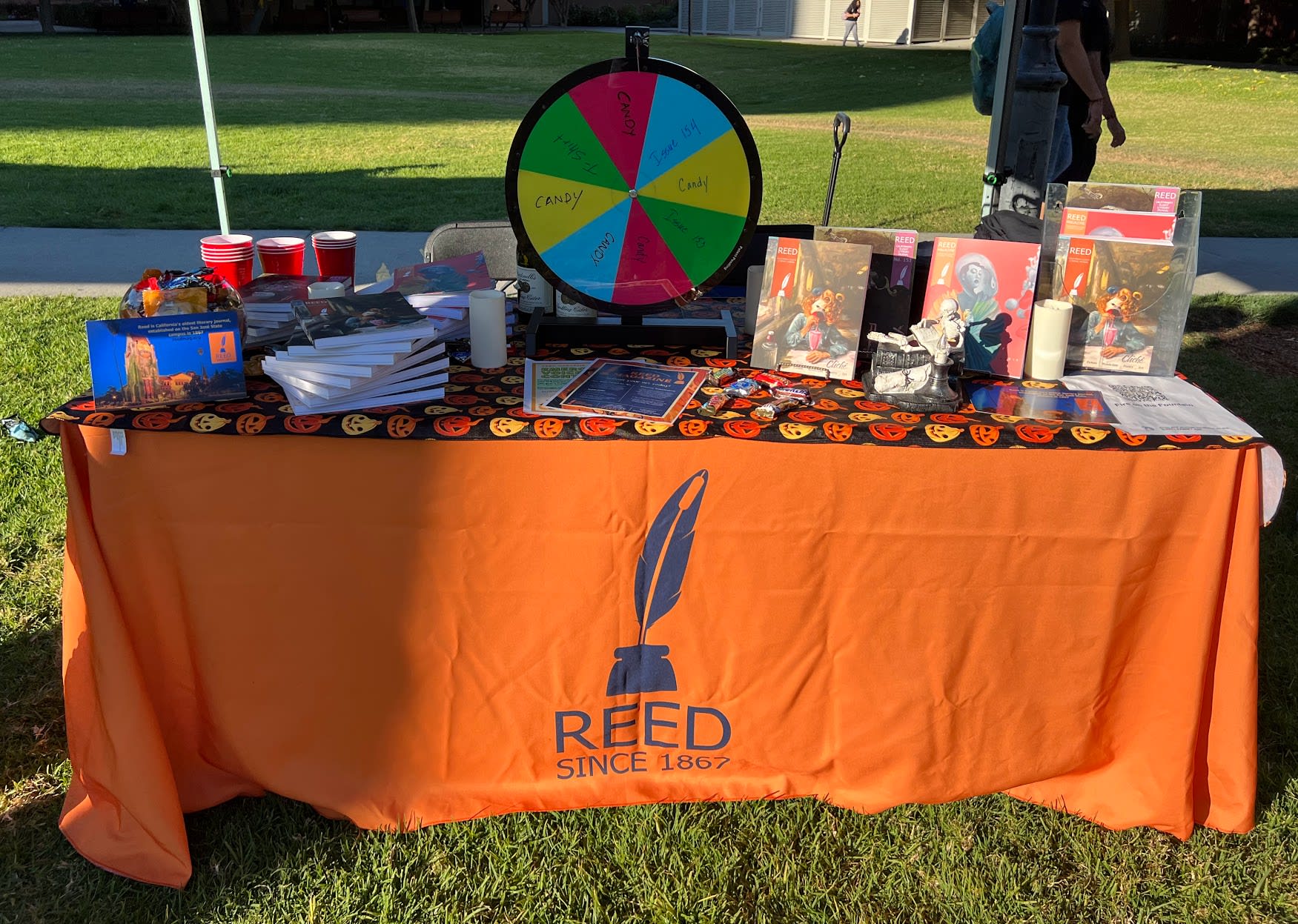Reed Magazine
Who are we?
Reed Magazine is the oldest literary journal in California. Established in 1867—just 10 years after the founding of the CSU here on the San José State University campus—Reed has grown from a mere pamphlet to a stout, award-winning journal that publishes art, fiction, nonfiction, and poetry from around the world.
Reed Magazine is also a class. A year-long sequence open to graduate students and upper-division English majors, English 133 offers students experience in editing and publishing and all the processes and operations required to produce a yearly anthology: copyediting, design, marketing, promotions, sales, distribution, and management of a robust website and social media presence. Fall semester, students review and select from thousands of submissions the material to include in the journal, which is produced and printed the following spring.

Why are we raising the money?
Reed is challenged to maintain its considerable forward momentum within the modest budget it is currently afforded. Printing and shipping represent the journal's biggest expenses. Other significant costs include student travel to AWP and operational costs such as funding our contests—which are consistently rated among the industry’s best. Further, we are eager to acquire a state-of-the-art scanner to catalyze our ambitious project to digitize and preserve our entire 156-year archive, to be housed at the MLK Library on campus.

How can you help?
As costs climb for printing—up 35% since COVID—and for shipping, we must offset those increases by cutting pages (i.e., rejecting more submissions) or restricting the very activities that have helped raise our profile. A gift of $500 could help defray the cost of printing 50 books or support distribution to 100 subscribers.
Chief among our successful promotional activities is our participation at AWP, a highlight each spring for Reed editors. Increasing the budget for student travel would expose students to dozens of craft talks and panels and hundreds of actively publishing authors, editors, agents, independent presses, and fellowship and grant opportunities. A gift of $250 could help send three student editors to this year’s conference in Seattle.
Finally, consistent with its standing among the most competitive contests among literary journals, Reed awards prizes of up to $1,333 to winners of its annual contests. A gift of $100 could finance the Emerging Voices Contest, which encourages local high school writers and artists to publish their work.
$25
Editorial Assistant
A gift of this amount could support publicity for our annual contests, which are consistently ranked among the best in the industry.
$50
Editor at Large
Donations at this level could support our spring production cycle by helping us ship as many as 25 books to the contributors whose work we are so proud to publish.
$100
Associate Editor
A gift in this category could help us buy a digital scanner to support our ambitious project to digitize the 156-year archive of Reed Magazine.
$250
Senior Editor:
A Senior Editor gift could help send three student editors to the AWP Conference and Bookfair, our flagship event.
$500
Associate Editor in Chief
A gift at this level helps with our biggest expense: printing. Donations in this range could help defray the cost of printing 50 books or support distribution to 100 subscribers.
$1,000
Executive Editor
Gifts at the Executive Editor level could cover the cost of exhibiting Reed Magazine at the AWP Conference and Bookfair or finance one of our competitive awards.





